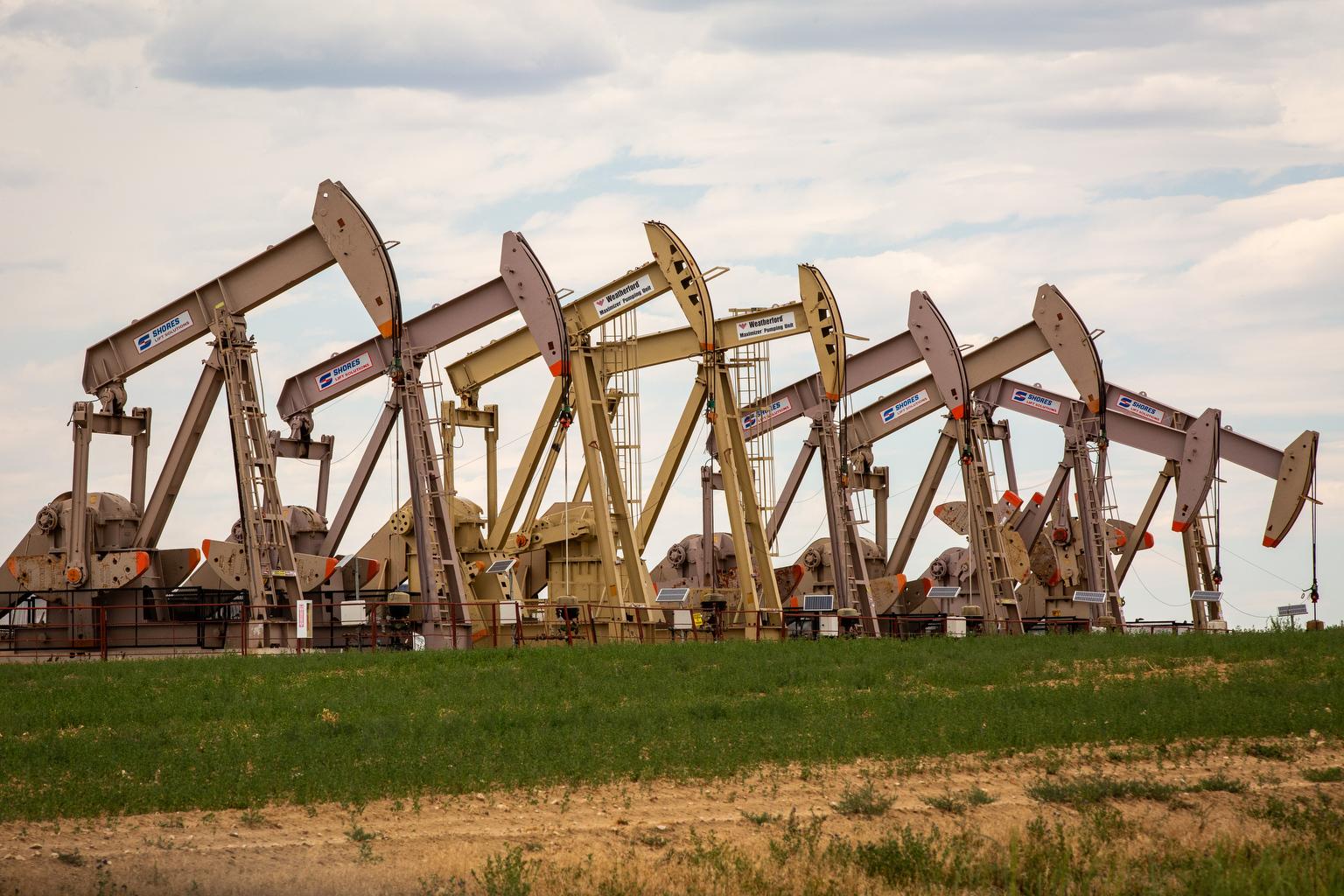
It’s been a wild ride for Colorado’s oil drillers.
Before the pandemic, they celebrated record-breaking oil production in Colorado. Then the industry was hit hard by the global shutdown, as oil prices briefly fell into negative territory, and drill rigs left the state. All while producers had to contend with a raft of new state environmental regulations.
Now, it looks like the industry has regained its footing — production has steadily recovered, and in the first quarter of this year, companies in Colorado have pumped more than 41.7 million barrels of oil, 19 percent more than the same period in 2021, according to data from the Colorado Energy & Carbon Management Commission.
“We have been in recovery mode since the pandemic,” said Dan Haley, president and CEO of the Colorado Oil and Gas Association. “But I believe it is an optimistic outlook in terms of what we're able to do here in the state, under some of the toughest environmental standards in the country, if not the world.”
Executives at Chevron, now the largest producer in Colorado after acquiring PDC energy, sound just as optimistic.
“You’d typically expect some weather-related downtime in Colorado in the first quarter, we saw some of that, but less than what we had planned for, so production was good,” said Mike Wirth, chairman of the board and chief executive officer of Chevron, on a recent conference call with investors.
Wirth, a Colorado native who attended CU Boulder, said oil production in the state is smaller than in states like Texas but is highly profitable.
“These are high cash margin, low-breakeven barrels that we’re really pleased to have in our portfolio,” said Wirth.
Energy analysts who study Colorado said it’s a unique state to operate in.
“Very strong returns. But largely we tend to agree as well that there's a lot of folks who have been scared off by the potential regulatory issues,” said Ryan Hill, an analyst at Enverus Intelligence Research.
There is concern, Hill added, that lawmakers and regulators will continue to add new environmental rules. But the companies operating in Colorado, he called them the “Big Three” — Chevron, Civitas Resources, and Occidental Petroleum — can largely manage the challenge.
Hill said that drillers in Colorado and elsewhere have made huge advancements in technology, allowing fewer rigs to produce more oil. There are only 16 oil and gas rigs operating in Colorado, half the number in 2019, according to data from Baker Hughes. Yet, oil production continues to rise.
“As technology improves we think that's going to help these operators still access a lot of this quality reservoir while staying within the rules so to speak,” said Hill.
Rigs themselves have become more efficient, said Hill, but also one rig can drill multiple wells and can drill further now.
For its part, Chevron believes that the political risk can be managed in Colorado.
Analysts on the recent conference call asked Wirth about the political risks in the state.
“I think there’s a recognition that responsible development in Colorado is what everybody wants and what we are committed to,” said Wirth. “There can be some noise around ballot proposals. There can be some noise around legislative proposals. But we’re confident that the state is interested in working with us to be a responsible player and for this to be an important part of the economy.”









